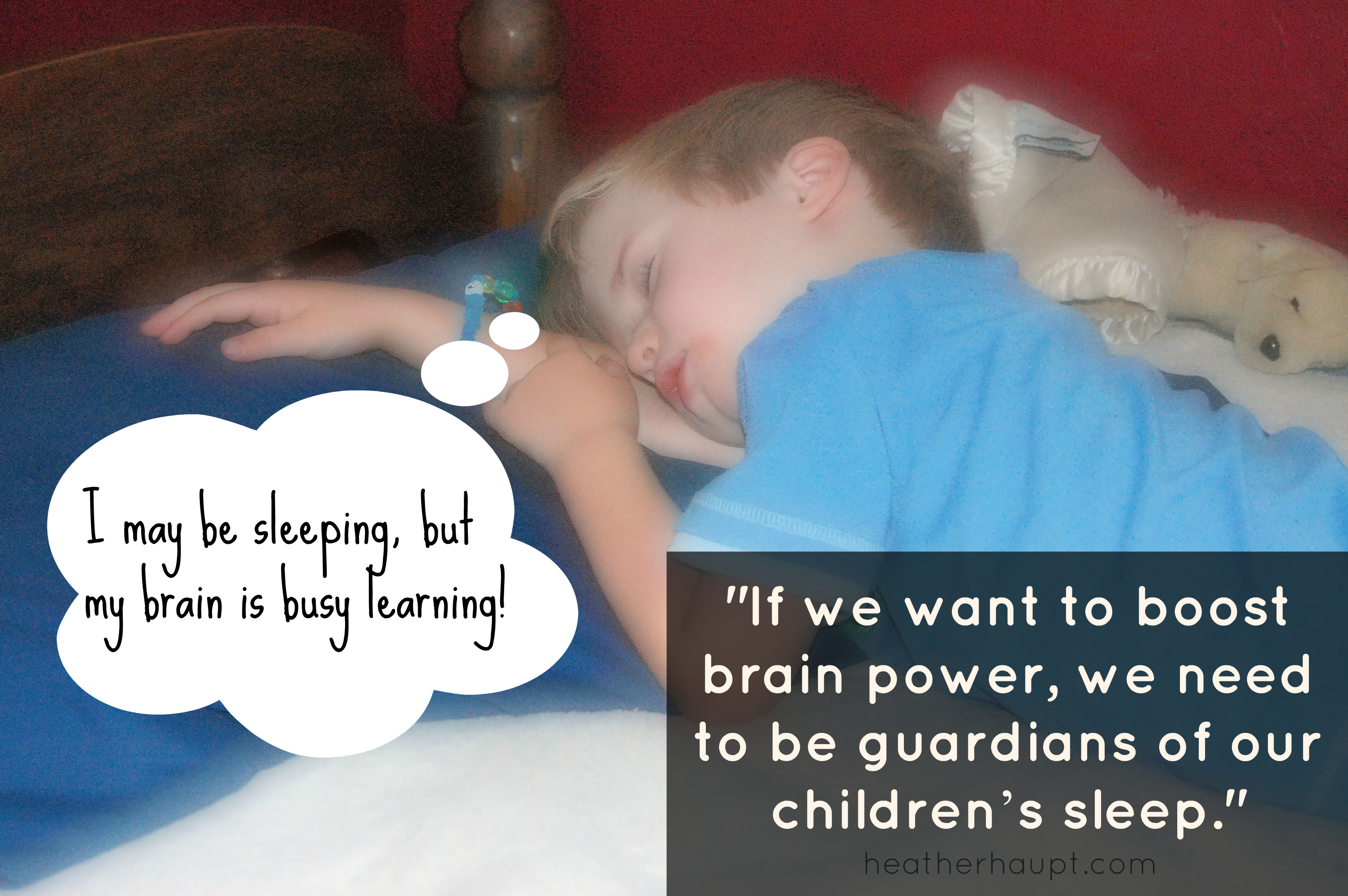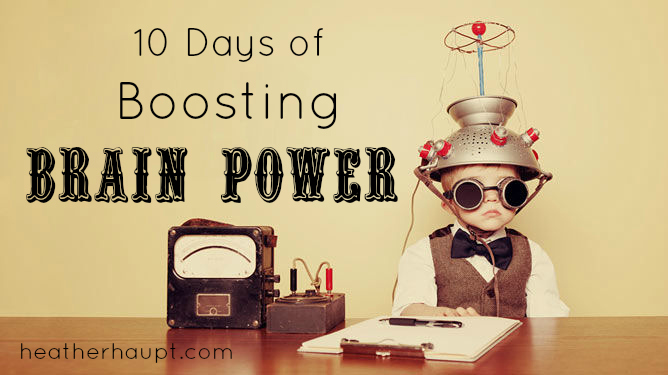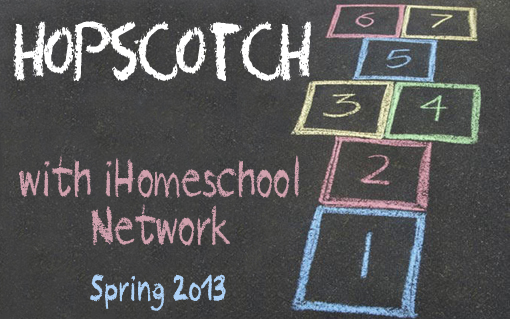
Have any of you had the answer to a question on the tip of your tongue, but you simply can’t come up with the correct answer… That is until 3 in the morning? It happens to me all the time. I’ve even taken to keeping paper and pencil next to my bed to jot down notes as they come to me in the middle of the night.
This occurs because while our bodies may be resting during sleep, our minds are actively processing the day’s events and problem solving! The neurons in our brains show vigorous activity while we sleep – perhaps replaying what we have learned that day. In fact, they show greater activity during sleep than when wide awake.
A recent study that just came out in Nature Neuroscience reveals that this process of converting implicit learning into explicit working knowledge during sleep is even far more effective for children than it is for adults – making quality and quantity of sleep for our children of utmost importance. This means that children take what they have learned about during the day and organize it into a meaningful and retrievable way while they sleep. Children typically sleep longer and deeper than adults which make it easier for them to take in and sort the enormous amount of information they encounter each day.
So yes, sleeping makes kids smarter. But what happens if we borrow some sleep time here or there for other activities?
A study of 77 children in Tel Aviv revealed that when children received as little as an hour less of sleep per night than their peers, they performed a full 2 grade levels lower. Wow. Just one hour less sleep resulted in an otherwise normally performing 6th grader displaying cognitive maturation and development of a mere 4th grader. Yikes! (source)
Sleep Loss = Brain Drain
Sleep loss has the following affects:
- Cripples thinking
- Shortens attention span
- Inhibits executive function
- Hurts short-term memory and working memory
- Affects mood (bet you never noticed that one…)
- Reduces quantitative skills, logical reasoning ability and general math knowledge.
- Inhibits both fine-motor and gross-motor skills
Thanks to MRI scans, researchers are finally starting to understand exactly how sleep loss impairs our children’s brains. We see when children are sleep deprived, neurons lose their plasticity and become incapable of forming the synaptic connections necessary to encode memory.
In his book Healthy Sleep Habits, Happy Child, Marc Weissbluth, MD, provides these insightful comments on the functions of sleep:
“Sleep is the power source that keeps your mind alert and calm. Every night and at every nap, sleep recharges the brain’s battery. Sleeping well increases brainpower just as weight lifting builds stronger muscles, because sleeping well increases your attention span and allows you to be physically relaxed and mentally alert at the same time. Then you are at your personal best.”
So How Much Sleep Do Kids Need?
Everyone has unique sleep needs, but there are some general suggested ranges:
| 1-12 months old | 14-15 hours |
| 1-3 years old | 12-14 hours |
| 3-6 years old | 10-12 hours |
| 7-12 years old | 10-11 hours |
| 12-18 years old | 8-9 hours |
* It is important to note that teens often have periods where they need more sleep than this…
So if we want to boost brain power, we need to be guardians of our children’s sleep. We need to watch our schedules closely. We need to be careful to not push our children by snatching bits of sleep time here and there, because it all adds up and the consequences are real.
Brain-Boosting TIPS:
Institute “Siesta Time”
It is interesting to note that scientists have discovered a nearly universal biological need for an afternoon nap (no matter what our age) Homeschooling provides the flexibility to build this into the schedule and give them a chance to recharge. In our home nap time never goes away. My mom started this while we were growing up and I’m continuing the tradition in my own family. We all lay down for an hour every afternoon. You can either sleep or read a book.
Sleep on It
Is your child struggling to grasp a difficult concept? Try talking it over and then letting them sleep on it. I regularly did this in high school and college and was amazed to find that most mornings I would wake up with fresh insight and the ability to find creative solutions! With my own children, I’ve learned the art of letting a lesson percolate while they sleep on it and then going over the same lesson the next day. More often than not, they are ready to tackle that seemingly insurmountable problem with relative ease.
Healthy Sleep Habits, Happy Child ~ I’ve talked about this book before. I seem to pick it up whenever a new baby is in the house as it is extremely helpful in explaining baby sleep needs, how to intuitively figure out their sleepy cues and find a nap routine that works for them. But the book covers so much more. He covers the importance of sleep for our children and addresses how to set up healthy sleep habits for children of all ages: birth-teenagers. I’ve consulted it when one son had night terrors and started sleep walking. It is an excellent resource to have on hand!
Sleep: It Matters.
{NOTE: I’m putting forward a theory on sleep loss and ‘mommy brain’ over on my facebook page today…}

That concludes day 2 in my series on Boosting Brain Power. Be sure to check out the rest of the series:
Day 1: Boosting Brain Power Starts with Food and Water
Day 2: How Sleep Makes Us Smarter
Day 3: Exercise Boosts Brain Power
Want to check out some other 10 day series?



Greetings! Very useful advice within this post!
It’s the little changes that will make the biggest changes.
Thanks a lot for sharing!
Love this! I am the living proof that you need sleep. I need about 9 hours a day to function. Thanks for the info.
Great info! I knew all this from my studies (natural health, herbalism, etc). But wow.. my poor kids with their broken body clocks. 🙁
It makes sense that people with Bipolar Disorder (and all the sleep problems) have trouble learning.
I love anything that takes away my “nap guilt”! 🙂 I find that I absolutely NEED a nap every day, but everything in American culture conspires to make me feel guilty for this, even though I realize that napping was nearly universal in ancient times. Thank you for posting what I needed to hear! We do 1 hour of quiet time every day over here too. 🙂
Our culture does a good job at making people guilty about a lot of good-for-us things. I think we have this perception that we should always be on the go in order to be productive and fail to realize the value of refueling to increase productivity.